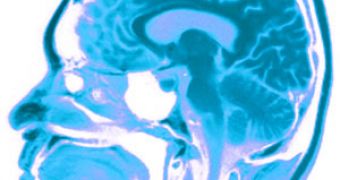Individuals who have been through a traumatic event often tend to associate certain signals coming from the environment with the occurrence of the bad experience. Such signals are able to trigger fear and even panic attacks, but luckily, the brain has the ability to turn off traumatic feelings related to the memory of the bad experience. Researchers of the University of California now reveal that they have identified the mechanism through which the brain achieves this feat.
Leader of the study, Rainer Reinscheid, associate professor of pharmacology and pharmaceutical sciences, says that the discovery could eventually lead to the development of new drugs for patients suffering from panic disorders. During a collaboration with researchers of the University of Muenster, Germany, the University of California team discovered that a protein known as neuropeptide S has the ability to regulate the response to bad memories while working as a stimulus on a series of neuron cells inside the amygdale, the region of the brain where negative memories are stored.
During the experiments, mice subjected to traumatic events appeared to respond to bad memories for a longer time if the NPS receptors of the amygdala were blocked. However, when the NPS receptors were again activated, the traumatic responses appeared to go away in much shorter amounts of time.
"The exciting part of this study is that we have discovered a completely new process that regulates the adverse responses to bad memories. These findings can help the development of new drugs to treat conditions in which people are haunted by persistent fears, such as post-traumatic stress disorder or other panic disorders," said Reinscheid in a press release.
Similar studies in this particular area previously showed that the majority of bad memories regarding the traumatic experience can be erased simply by exposing the person to the location were the event took place. The new findings on the other hand, clearly indicate the specific neurons and stimuli responsible for the elimination of these fear memories.

 14 DAY TRIAL //
14 DAY TRIAL //